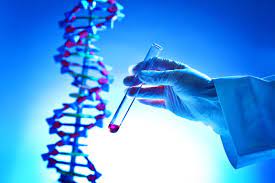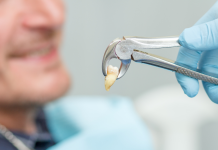Read Time:4 Minute, 44 Second

Genetic Testing Farmington
Genetic Testing Farmington like most people, you probably don’t think about your genes all that much. But what you may not know is that your genes can play a role in your health and well-being. In fact, your genes are responsible for many common diseases, including cancer. Now, genetic testing is becoming more and more common, and it’s not just for people who are concerned about their health. You may be at risk for a genetic disorder even if you don’t have any signs or symptoms. If you’re curious about your genes and are looking for ways to improve your overall health, genetic testing is a great way to start. In this post, I will be introducing you to the different types of genetic testing, and I will also be sharing with you some of the benefits of genetic testing. So if you’re interested in knowing if you’re at risk for a genetic disorder, read on!
1. What is a genetic disorder?
A genetic disorder is a disorder that is caused by a genetic mutation. This means that the disorder is due to a change in the DNA sequence in one or more genes. There are over 200 known genetic disorders and the number is growing every day.
If you are concerned about your risk for a genetic disorder, you should consult with a genetic counselor. A genetic counselor can help you determine your risk for a genetic disorder and can provide you with information about genetic testing and genetic counseling.
If you are at risk for a genetic disorder, it is important to make sure that you get tested. Testing can help you find out if you have the disorder and can also help you find out if you have the gene that causes the disorder.
2. How is a genetic disorder diagnosed?
There are a few ways that a genetic disorder can be diagnosed. Your doctor will likely perform a physical exam and ask about your family history. They may also order blood or saliva tests to look for the specific gene mutation. In some cases, a genetic test may be needed to figure out the specific cause of a problem.
Once a genetic disorder is diagnosed, treatment will typically involve a combination of medications and/or surgery. If the disorder is caused by a mutation in a gene, then trying to correct the mutation with a medication may be the only way to cure the disorder.
If you’re concerned that you may have a genetic disorder, talk to your doctor. They can help you determine if you’re at risk and give you information on how to get tested.
3. risks for developing a genetic disorder:
If you’re like most people, you’re probably wondering if you’re at risk for developing a genetic disorder. Fortunately, there are some simple tests you can do to find out.
If you’re concerned about your risk, you should talk to your doctor. However, knowing some of the risks can help you make informed decisions about your health.
According to the National Genetics Institute, there are over 100 genetic disorders. Some of the most common include:
– Down syndrome
– Fragile X syndrome
– Cystic fibrosis
– Huntington’s disease
– Williams syndrome
These are just a few examples. If you’re at risk for a genetic disorder, it’s important to get tested. You may be able to prevent a disorder from developing if you know about your risk.
4. How can you protect yourself from developing a genetic disorder?
If you’re concerned about your risk for developing a genetic disorder, there are a few things you can do to protect yourself. First and foremost, be sure to get your blood tested for both genetic and mitochondrial issues. Genetic testing can identify mutations in your genes that may increase your risk for developing a genetic disorder, while mitochondrial testing can identify changes in your mitochondrial DNA that may increase your risk for developing a mitochondrial disorder. If you have a family history of a genetic disorder, you should also consider getting tested.
You can also reduce your risk for developing a genetic disorder by following the guidelines for reducing your risk for developing a chronic disease. These guidelines include eating a balanced diet, getting enough exercise, and avoiding tobacco, alcohol, and other harmful substances.
5. What to do if you develop a genetic disorder?
If you have any family members who have a genetic disorder, it’s important to know that you may be at risk. If you’re not sure if you have a genetic disorder, it’s important to get tested. If you are diagnosed with a genetic disorder, there are steps you can take to manage it.
If you’re not sure if you have a genetic disorder, it’s best to get tested. Many times, if you are at risk for a genetic disorder, you won’t know it. This is because genetic disorders can cause no symptoms at all in some people.
If you do have a genetic disorder, there are steps you can take to manage it. Managing a genetic disorder can be challenging, but it’s possible with the right help.

If you’re anything like us, you’ve been curious about your genetic makeup and whether you might be at risk for a genetic disorder. We’re excited to share with you our latest blog post about how to find out if you’re at risk for a genetic disorder. In this post, we’ll explain how to get your genetic test results and what to do if you’re found to be at risk. We hope that this post will help you to make informed decisions about your health and to feel more confident about your genetic makeup.
——————————










